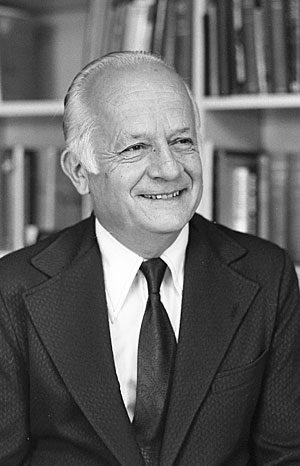|

Jun 26, 1916 - Sep 13, 1990
 
University of California at Berkeley - 1939
I was unable to find an obituary for Sara, however, during my search I came across the obit for her husband of 48 years:
Wayne S. Vucinich (1913-2005)

Professor Wayne S. Vucinich, Robert and Florence McDonnell Professor of East European Studies, emeritus, died of heart failure in Menlo Park on April 21, 2005. Vucinich was the "Nestor of Balkan studies in the United States" (Ivo Banac) and a central figure in the development of the History Department and of Stanford University in the half century following the end of World War II.
"Uncle Wayne," as he was known to generations of devoted graduate students and friends, was born in Butte, Montana in 1913, the son of Serbian emigrants who came to this country to work in the mines. His parents died in the influenza epidemic of 1918, and he was taken back to their native village of Orah, near Bileca in the mountains of Eastern Herzegovina. His memoirs of this period of his life have just been published and they recall a hard, but robust youth of shepherding and subsistence farming.
Vucinich was sent back to Los Angeles to live with his godfather's family when he was 15. He was a star athlete in high school and managed to enter the University of California at Berkeley with still imperfect English. At Berkeley, he studied with the famous Slavicist, Robert Kerner, who encouraged the young immigrant to pursue a scholarly career. Vucinich then did postgraduate work at Prague's famed Charles University in 1937-38, when the Munich crisis interrupted his doctoral studies. He returned to Berkeley and finished his doctorate under Kerner's direction in 1941.
During the war, Vucinich entered the Navy and served in the Office of Strategic Services (OSS) as a specialist on the Balkans. He worked at OSS headquarters in Bari, Italy, and was later posted to the Allied Control Council in Bulgaria in 1944. After a brief stint in the State Department after the war, in 1946 he was offered a position as a Western Civilization instructor in the History Department at Stanford, where he remained for the rest of his career.
Vucinich's revised dissertation, Serbia between East and West, was published by Stanford University Press in 1954. This pioneering synthesis of diplomatic and national history was awarded the American Historical Association's George Louis Beer prize, establishing him as one of the leading scholars in the field. From that point until only a few years before his death, Vucinich authored and edited a series of books and articles that earned him the reputation of a fair-minded, erudite, and wide-ranging historian of Eastern Europe, the Balkans, the Ottoman Empire, and Imperial Russia and the Soviet Union. Among his many exemplary scholarly accomplishments was the editing of a multi-volume series on the nationalities of the Soviet Union, published by Hoover University Press.
As a determined "progressive," a veteran of the OSS Yugoslav desk, which had advocated wartime aid to Tito and the Partisans, and an open-minded scholar of Soviet and East European affairs, Vucinich in the early 1950s attracted the unwelcome attention of federal agencies influenced by McCarthyism. Stanford's lawyers became involved in defending him in hearings before the Naval Security Board, and his name was soon cleared. He remained grateful to the university for the rest of his life for defending him and other colleagues whose patriotism was unjustifiably questioned.
Vucinich was involved in a series of Stanford institutional innovations. Together with Rixford Snyder, he helped to found Stanford Alumni Travel Study, and led dozens of extremely popular trips on the Danube. He played an important role in the development of Overseas Studies, teaching generations of Stanford students at the Beutelsbach, Florence, and Vienna campuses. In addition to serving as Curator of the Slavic collection at the Hoover Institution, he helped to found and directed for many years Stanford's Center for Russian and East European Studies (CREES), raising much of the funding for its endowment and for a chair in East European studies. Vucinich led the effort to build up the field at the university, creating at Stanford one of the preeminent centers for Russian and East European studies in the English-speaking world. He helped bring the national organization of Slavicists (AAASS) to Stanford and fostered its development through his Presidency and many years of involvement. The AAASS's "Wayne S. Vucinich Prize for the Best Book in Slavic Studies," is an ongoing symbol of his important contributions to the field nationally.
Vucinich's extraordinary mentorship of students is as important in understanding his rich career as his scholarly, teaching, and institutional activities at Stanford. Not only did he train two generations of this country's leading East Europeanists as graduate students, he also had an amazing knack for imbuing in Stanford undergraduate history students the confidence that they could become professional historians themselves. Many dozens followed this path, often owing their placements, as well as education, to Vucinich's efforts. The hundreds of other Stanford undergraduates, who ended up pursuing a variety of career paths, never lost the love of history they discovered in "Uncle's" classes, in his office, at morning coffee, and at his dinner table at home.
Vucinich's wife and partner of 48 years, Sara "Sally" Vucinich, died in 1990. He is survived by his two daughters, Annette Davis of San Francisco and Connie Vucinich Furlong of Baindridge Island, Washington, three grandchildren and three great-grandchildren, as well as scores of honorary nieces and nephews.
Committee: Norman M. Naimark, Chair David M. Kennedy
|

